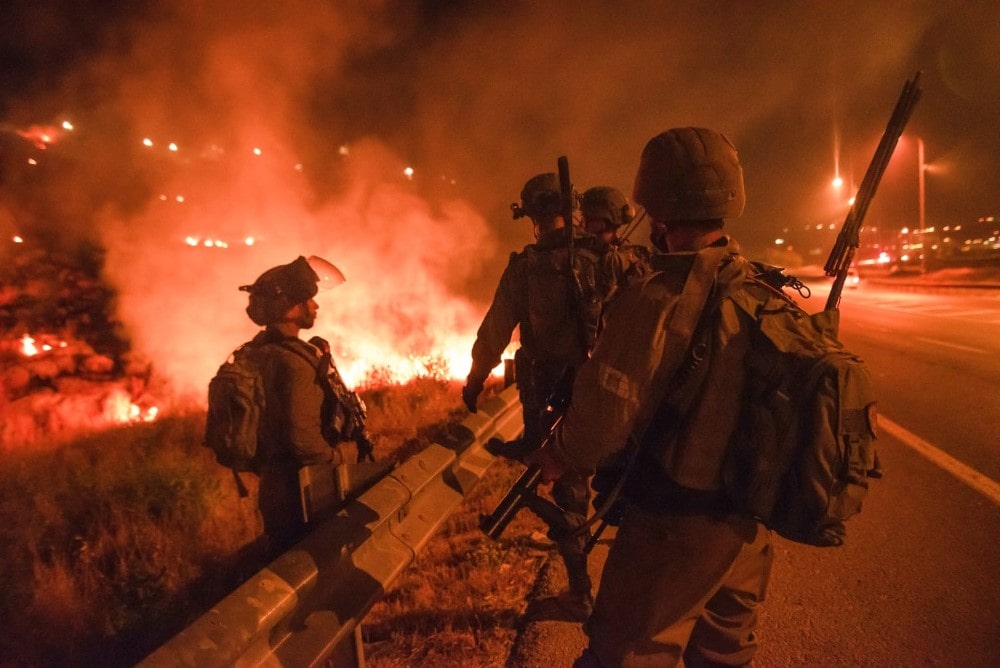
The next Israel-Hezbollah war will be different than previous conflicts. It will feature new tactics and strategies, and will likely be deadlier than before. If it escalates and spirals out of control, it could have far-reaching implications that will change the Middle East.
The last major campaign fought by Israel is the 2006 Lebanon War. The battle was essentially a contest between two concepts: A Shiite doctrine stressing psychological warfare and attrition, and an Israeli focus on firepower.
Hezbollah sought to draw the IDF into a prolonged conflict, while exploiting Israel’s heightened sensitivity to casualties. Israel hoped to win the fight with brute force, mostly from the air.
Two veteran intelligence analysts, Itai Brun and Itai Shapira, say that both concepts proved ineffective. The Shiite axis made some gains, but sustained severe damage. Meanwhile, the IDF hit Hezbollah hard but failed to secure a decisive victory.
A strategic paper authored by Brun and Shapira at the Institute for National Security Studies in 2020 says that both sides reassessed their assumptions. The Shiite axis concluded that avoiding defeat was not enough. Israel realized that it cannot solely rely on its existing firepower.
The modified Shiite approach is more aggressive and reflects a fundamental shift, says the paper, which remains highly relevant. Notably, Israel’s enemies no longer seek to achieve “victory by non-defeat.” Instead, they now aim to inflict heavy damage on Israel’s strategic infrastructure, military assets and civilian population.
Extensive devastation
In the next war, Hezbollah and other Iranian proxies will fire unprecedented missile barrages and aim to severely disrupt civilian life and IDF operations. The army estimates that the group will launch 4,000 rockets per day in the first days of a future conflict.
Hezbollah will likely also launch cross-border attacks, possibly sending thousands of elite troops into Israel to take over towns or military bases.
Meanwhile, Israel’s war planners also drew some conclusions. This prompted the IDF to acquire more lethal capabilities based on pinpoint intelligence and more powerful weapons. In parallel, the army worked to upgrade its ability to carry out decisive ground maneuvers in enemy territory.
The modified Shiite and Israeli strategies suggest that the first days of the next war will see extensive devastation. Given this destructive potential, both sides will likely aim to secure quick achievements and end the war before they pay an unbearable price.
However, the dynamics of such war are hard to predict, as are the calculations of the participants. It is entirely conceivable that either Israel or the Shiite axis, or both, will insist on landing additional punches before ending the fight, thereby creating an ever-widening circle of attacks and counter-moves.
For Israel especially, some outcomes could be unacceptable. These include extensive devastation of the home front, or a successful Hezbollah raid on an Israeli border community. Under such circumstances, the IDF may be pressed to deliver a decisive blow to ensure a clear victory.
Will Israel bomb Iran?
In case of severe escalation, Israel has several options. The most immediate would be to devastate Lebanon and wipe out Hezbollah’s nerve center in Beirut, as Israeli leaders have already threatened to do. Another option would be a deep incursion into Syria, particularly if Iran’s militias or Syrian forces pound Israel from this territory. A third option is a direct attack on Iran.
Each of the above possibilities would carry dramatic consequences. The destruction of Lebanon will leave the country in ruins for years, and hit Shiite areas particularly hard. Such war will also stir anti-Shiite sentiments among other ethnic groups. Consequently, Hezbollah’s dominance and Iran’s influence in Lebanon may be severely constrained.
In Syria, a wide-ranging Israeli operation would gravely destabilize the Assad regime. Strategic bombing of targets in Iran would cause even greater regional tremors, and could provoke major superpower involvement.
While escalation in a future war is a real possibility, there are some strong restraining elements in place. In theory at least, Israel and the Shiite axis wish to avoid an all-out war that would entail severe costs for both sides.
Still, regional tensions will remain high, and so will the risks. Moreover, at least one observer predicted the eruption of a major war early in this decade. If his predictions prove accurate, Israel’s next war will indeed change the Middle East.


